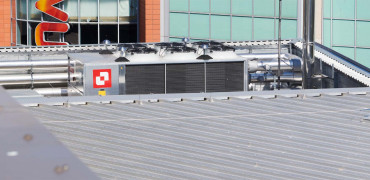The government seems to repeat the phrase ‘Industrial Revolution’ every time it promises a profitable, sustainable, Net Zero future for the UK.
It makes me wonder if the politicians sat through the same school history lessons as the rest of us. Because I think a peaceful transition to a Net Zero future would be preferable and more achievable than a repeat of the Industrial Revolution.
To put it bluntly, many ingredients needed for an industrial revolution are lacking in modern Britain, mainly due to government policy and foot-dragging.
Moreover, there are many aspects of it that historical period we should leave in the past.
We cannot afford to leave anyone behind on this journey.
The stars all aligned at once
The factors that brought about the first Industrial Revolution were numerous (as I recall from trying to memorise them in my school days).
Britain had natural resources such as coal and iron ore. Great inventors and engineers developed the steam engine, railways, and machinery like the Spinning Jenny that boosted manufacturing and made Britain the workshop of the world.
In addition, plenty of capital was pouring in from international trade, financing infrastructure development such as canals (and eventually railways).
Another critical factor was the earlier agricultural revolution that increased food supplies, allowing for population growth and a large workforce for the new factories.
Could this happen again?
If we look for those factors in Britain today, I am confident that we have retained our inventive engineering spirit, and there is certainly no lack of will in the construction industry to get to Net Zero.
But some of those other important ingredients for a Green Industrial Revolution are missing. For instance, the workforce needed to install 600,000 heat pumps annually by 2028 is short by several thousand.
The UK’s electricity infrastructure also desperately needs upgrades if it is to carry more wind-generated electricity to the country. This requires an extension of the grid and upgrading its digital capabilities to allow for better energy balancing through Automated Demand Response.
Finally, regarding finance, the government sends confusing signals to industry and householders. Government grant schemes promise much but then are pulled or close quickly as funds run out, and then there is a funding gap as politicians try to decide what to do next. This leaves private investors wavering and uncertain about the government’s commitment to Net Zero.
Former Prime Minister Theresa May, who introduced the Net Zero goal into UK law in 2019, recently expressed frustration with the government saying: “Where the UK once led, we are now falling behind.”
The only way our current journey to Net Zero is anything like the Industrial Revolution is that it’s messy and painful.
Evolution not revolution
But do we want another Revolution? It’s easy to see that period of history through rose-tinted glasses, but many people were left behind as technology changed – see the lacemakers of Nottingham. Colonies abroad were stripped of resources, and workers in Britain and abroad were exploited.
It would be far better if we referred to a Net Zero Transition. It implies a smooth but steady shift to a low-carbon future in which everyone, the government included, works to an agreed strategy.
We cannot afford to leave anyone behind on this journey. That means bringing all commercial buildings and dwellings to agreed Net Zero standards. The UK must provide long-term, reliable funding for householders and small business owners. This will help lift the demand for Net Zero technologies and services, encouraging private investment, and allowing that entrepreneurial and innovative spirit to thrive again.
So, I won’t be on the barricades for a Green Industrial Revolution. Instead, I’ll be holding out for a planned, smoothly executed, and well-engineered transition that brings everyone along and benefits all.
Dave Archer, Business Manager - Influenced Sales




